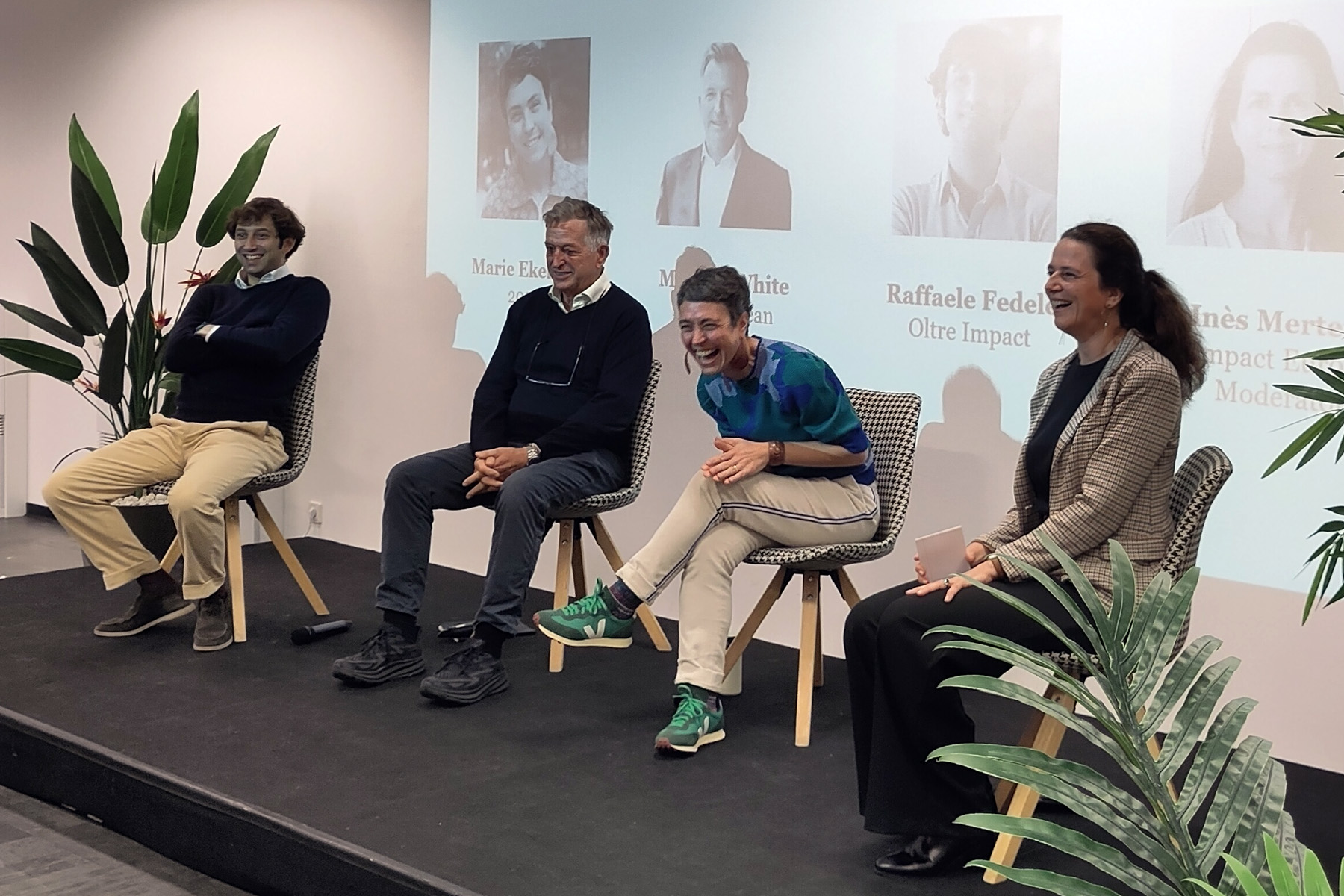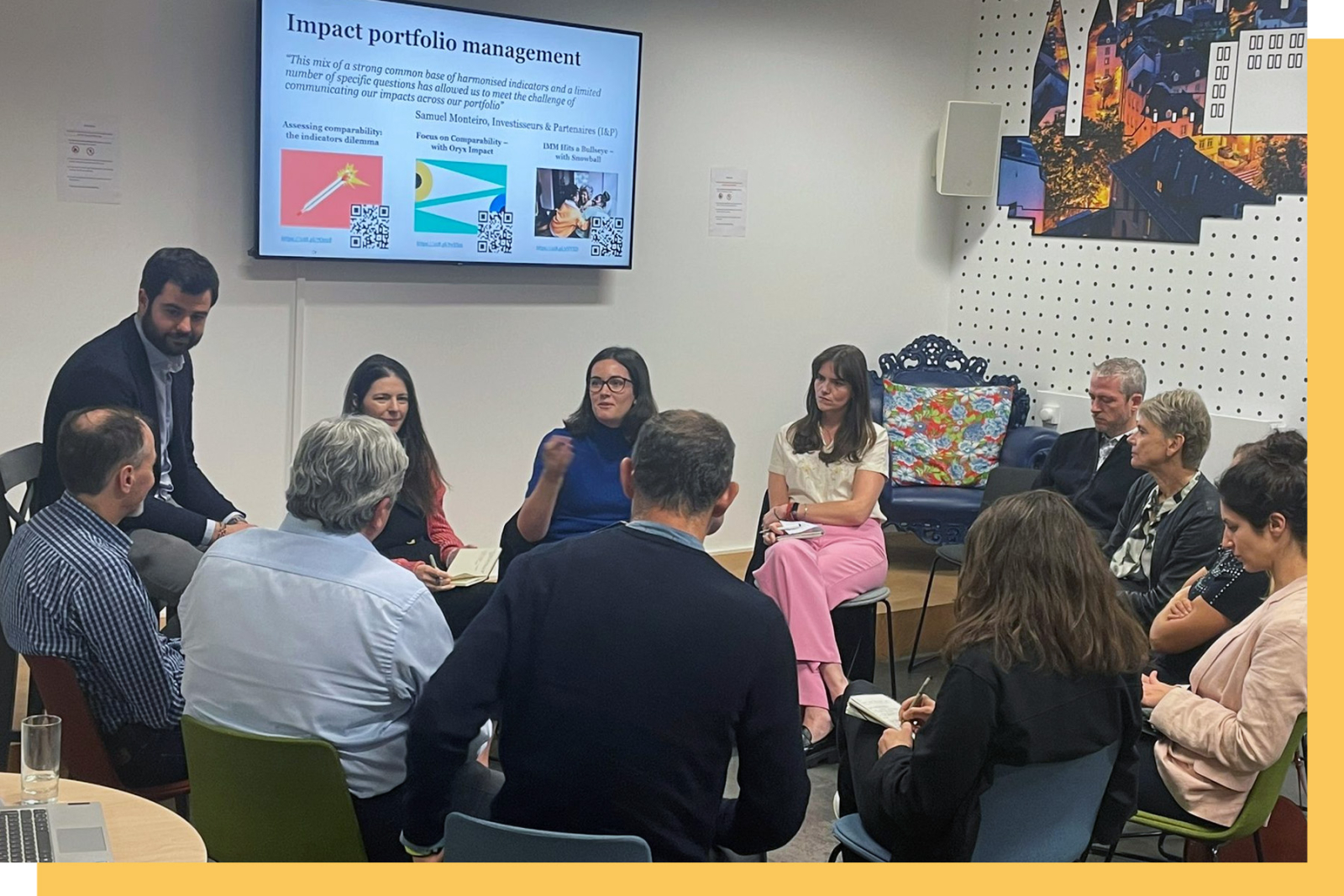Flock Talk
On 21-22 October, Impact Flock convened an invite-only audience of European impact venture capitalists (impact VCs) to connect, exchange knowledge and forge connections.

Flocking together
Impact VCs occupy a unique niche in the impact ecosystem; their central challenge is adapting the practices of mainstream venture capital to a context that puts people and planet first. As with many segments of the impact ecosystem, a key way impact VCs can learn best practices is to come together and share community wisdom.
By giving the impact VC community a chance to gather and discuss the topics closest to them in a peer-to-peer setting, Impact Flock meant to encourage the sharing of common challenges and insights. We also aimed to stimulate connections, as impact VCs are generally on the lookout for new partners and new routes to mobilising funding.
Impact Flock preceded the EIF’s Ugly Duck event in Luxembourg, and the timing was intentional: Impact Flock attendees first got a taste of their peers’ hottest topics before stepping into the broader discussion of venture capital at Ugly Duck, which posed more big-picture concerns about the state of European finance (opening session: Does venture capital still matter?).
Flocking and talking
At Impact Flock, 24 hours of interactive, hands-on workshops intended to spark dialogue, pose bold questions and highlight opportunities for collaboration. Panelists were leaders of the Impact Europe community, and came from some of the most experienced collaborators in the ecosystem: 2050, Ananda, Citizen Capital, Creas, EIF, makesense, Maze and Snowball, to name just some.
Together, impact VCs talked through their common challenges. They talked strategy – for fundraising, setting up funds, building portfolios and managing them. They talked metrics and indicators (session: “IMM impact portfolio management”) and carry structures (“Impact-linked compensation”). They took the temperature on labels for impact (“Impact certification”) and the opportunities and risks posed as AI enters the ecosystem (“AI for impact”). And finally, so as not to deny the human side of an impact VC’s journey, they talked about ways to safeguard the mental health of their community (“Founder well-being").

Takeaways
Sessions highlighted common challenges for impact VCs: lack of data to inform decision-making; how to show limited partners (LPs) the value of impact and balance the narrative of impact versus returns; and the fact that the additional work to provide impact measurement is not captured in management fees. There were no one-size-fits-all solutions to these challenges, but that wasn’t the point of Impact Flock; rather, it was a chance for impact VCs to launch a discussion with their peers about what has worked and what could. Along the way, some key takeaways emerged as the talk of the Flock:
Measure for company value: There was a trend toward proving “shared value,” as Camilla Dolan (Eka Ventures) wrote in a LinkedIn post: “how being impact focused is improving company performance and resilience.”
Exit for scale: Lara Viada (Creas) shared her experience of an exit where impact scaled afterward – an inspiring case. But even with cases such as this as evidence, showing that impact VC investments create long-term value remained a challenge for those present.
Consider the evergreen: An evergreen model of impact VC aims to be regenerating without putting pressure on companies in the short term; it aligns incentives with a patient carry structure and buys time for LPs to match the interest of the company with stakeholders. Leaders of funds like 2050 took the opportunity to educate the audience on the benefits of going evergreen.
Consider the stakeholders: “Although data might be limited,” wrote Marion Schuppe (makesense) on LinkedIn “I am convinced — and have many examples — that companies focusing on stakeholders, including people and nature, develop greater resilience and outperform the market during turbulent times — like today.” In tandem with this view, Marion echoed the advice of Marie Ekeland (2050) in her session: keep the focus on the risk-return ratio.
Improve processes to scale: Antonio Miguel (Maze impact) shared a self-built platform allowing investees to speed up their support for fundraising and talent acquisition.
Mitigate mental health risks: Entrepreneurs are more inclined to suffer from mental health disorders. VCs have the responsibility to take care of their investees through good support and coaching. This not only entails a human factor but also reduces risks for investors and ultimately increases the probability to achieve impact.
Taking flight
Many of the Flock mentioned throughout this article will be present at Impact Week on 27-28 November. If you’re seeking to connect with likeminded peers in the impact VC space, the event is a great place to do so. Or, if you’re interested in joining these rare but impactful birds of our community, please reach out to Ines.
